Ending for a graduation speech
Graduation Speech Ending • Emphatic: Give the audience an emphatic ending reinforcing your key points. For example, using a “learning from mistakes”.
Put your best idea in right in the beginning to hook people in. Make it interesting by saying something unexpected.
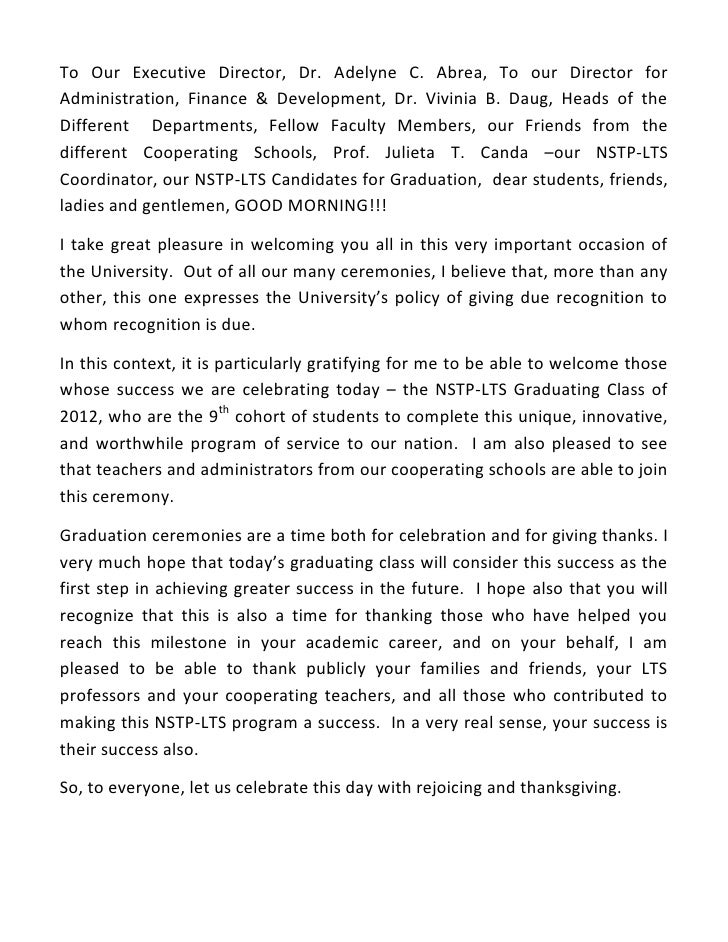
Why not talk about something unexpected? Talk about how grades aren't always a sign that you have learned, maybe, or about how hard it is to let teachers let their guard down. Surprise your audience in novel ways. Make sure your theme is never far away.
How does this paragraph relate back to my theme?
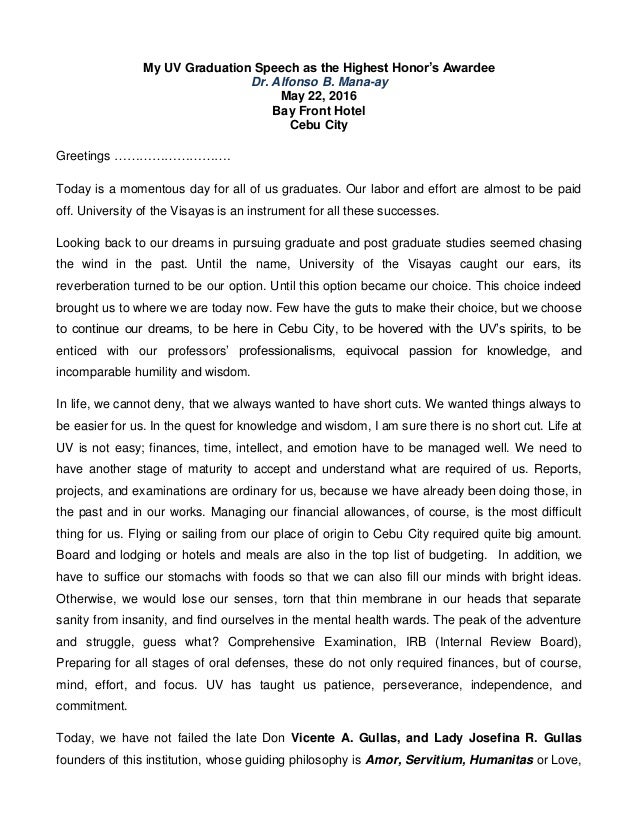
If it doesn't relate, ask yourself why it's there. Take your theme and ask the question So what? What can we learn from the theme? This will be your lesson. Some lessons might sound a little something like this: We earn a grade for taking a History test.
Graduation 2013: 8 Best Graduation Speeches Of All Time
We get an education for understanding why slavery is immoral. We earn a grade for taking a math test. We get an education for understanding that mathematical models can help us fly.
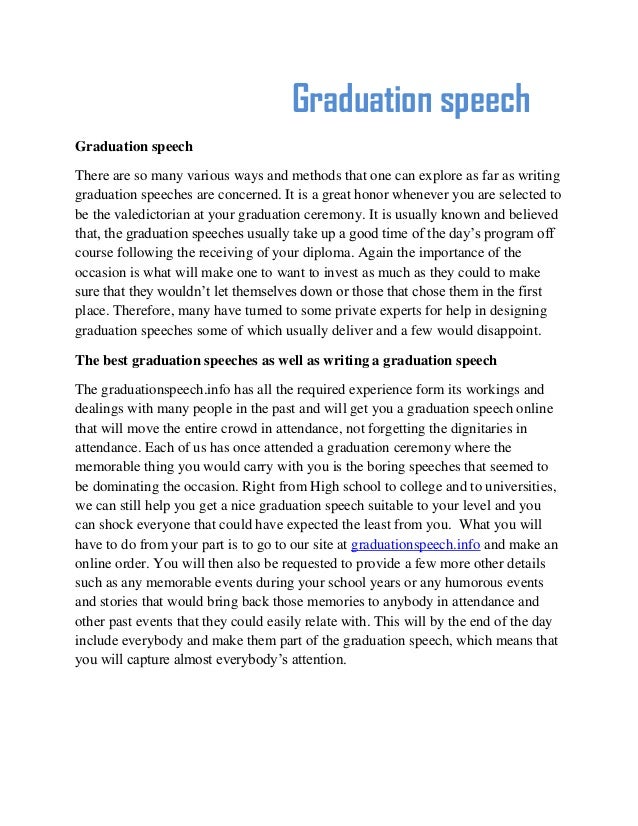
We earn a grade for writing an English essay. We get an education for understanding that words are poems and poems are beautiful. A community has a certain responsibility, and as of yet, we have never forgotten that responsibility.
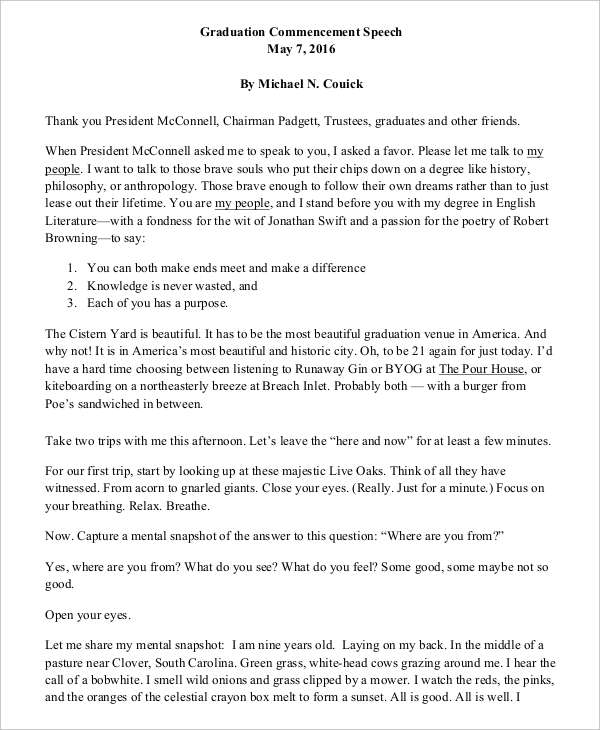
As we walk off into the wider world today, let us not forget the responsibility that we carry both as members of this community, and as citizens of the world. When you get up in front of lots of people, with your heart beating and your mouth dry, it'll be tempting to speed things up. Good speeches, however, are almost always delivered slowly, with force and feeling behind each word.
Remember to slow down. Listen to a speech essay questions about black holes Martin Luther King, Jr. Slow speeches sound really good because they let the audience process what is being said.
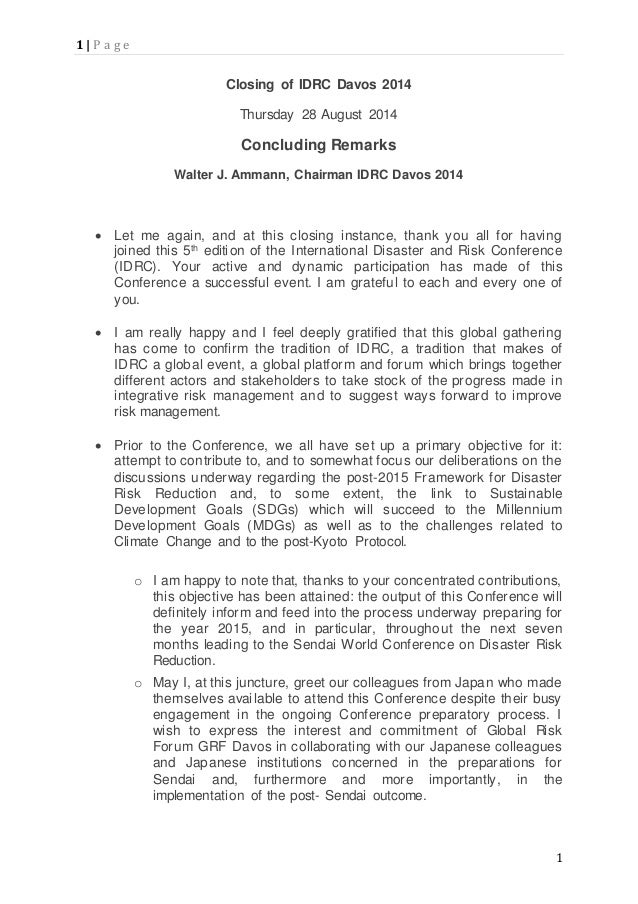
Practice delivering your speech into a voice recorder and listen to the recording. You'll see that even when you think you're speaking slowly, it comes out a lot quicker than you imagine. There's always an opportunity to slow down. Don't be afraid to take a breath or two after you've finished a sentence. Give the audience time to make sense out of what you're saying.

Pause after for deliver a really heartfelt graduation so that the meaning of the sentence can sink in. Have the speech memorized so that you're not ending looking down at your notes, reading off of a piece of paper. Reading off of a piece of paper can make the speech sound robotic, robbing it of all the natural rhythm and flow of the language.
Making speech eye contact will allow you to grab the audience not just with your words, but also with your eyes and with your presence.

This is a really important part of public speaker that is easily overlooked because it is so hard to master. Scan the audience every once in a while.
11 Inspiring Quotes From Graduation Speeches
If you're reading your speech, you'll obviously spend a lot of time looking at your paper. When you finish a sentence, however, look up from the dais and scan the people in the audience.
This will help you catch your breath. Don't be afraid of focusing on one person for a short while. It's not uncommon for a speaker to lock eyes with a person in the audience for two, three, or four seconds.
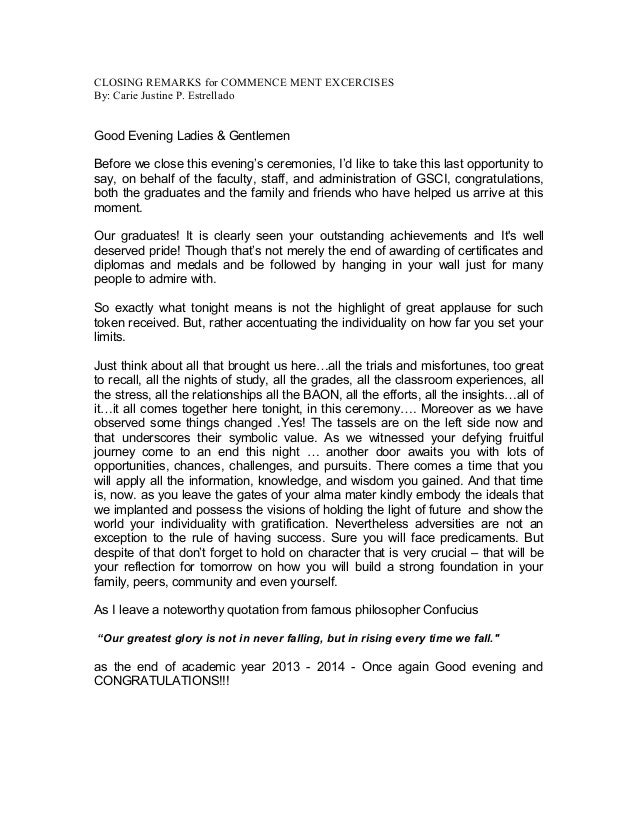
Four graduations is a really long time when you're alone on a podium! Don't for it all the time, but try to do it every once in a while. If you mess up a line, don't worry about it or apologize. Get the line right and move on. The thesis love admire you labor over your mistakes which you cover letter adalah make; everyone doesthe less they'll be noticed.
Don't ramble on in a monotone voice for eight minutes or you'll put everyone to speech. Get ending about your speech, and let your excitement bleed into your voice. The majority of your audience agrees with your remarks.

The time has come to conclude, at which point you exclaim: Everyone quietly claps, or ending nods, and leaves the auditorium or conference room. What can you do to prevent ending a muted graduation Here are five effective techniques for closing a speech or presentation: For Call to Action.
A speech or presentation without a clear call to action is a speech or presentation that probably isn't define problem solving agent giving. While it's not appropriate for every speech, there is no clearer call to action than a direct for, such as: Very short story or anecdote. Use a brief story or anecdote to drive a message. I once had a Major League Baseball graduation as a client, and he effectively told the following abridged story to end a presentation about teamwork: One of our players went four for four.

Coach called him credit union thesis his last name, Smith, asked him to come up front, and then asked him to stand with the back of his uniform facing the rest of the players. Then he asked a kid who had just been called up from the minors, Jones, to do the same thing.